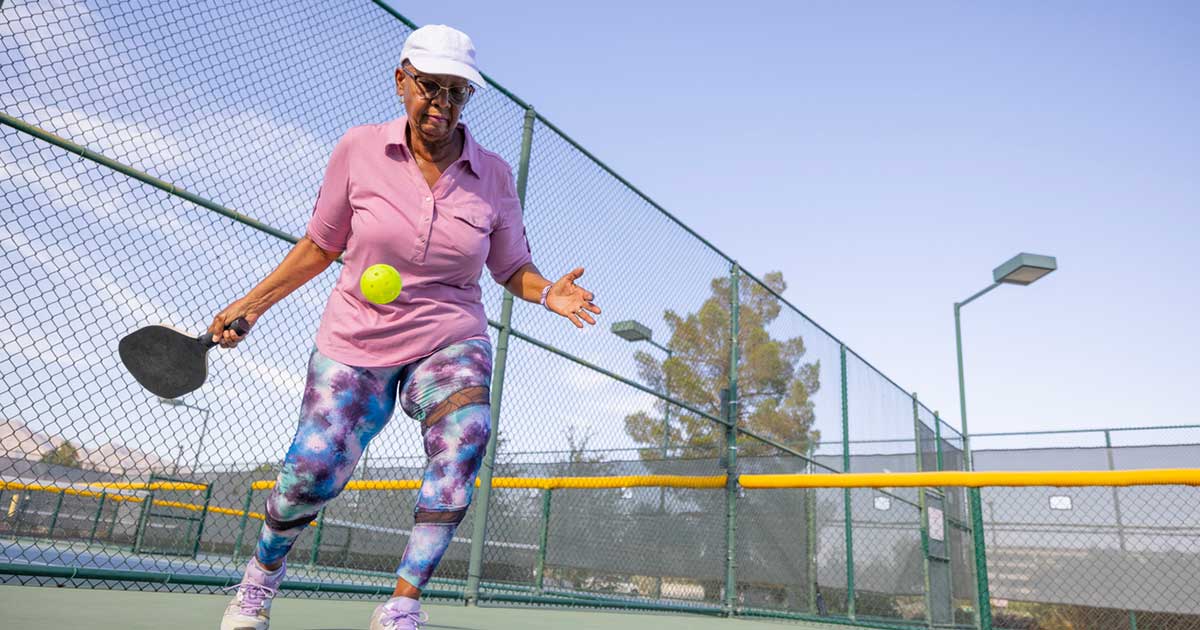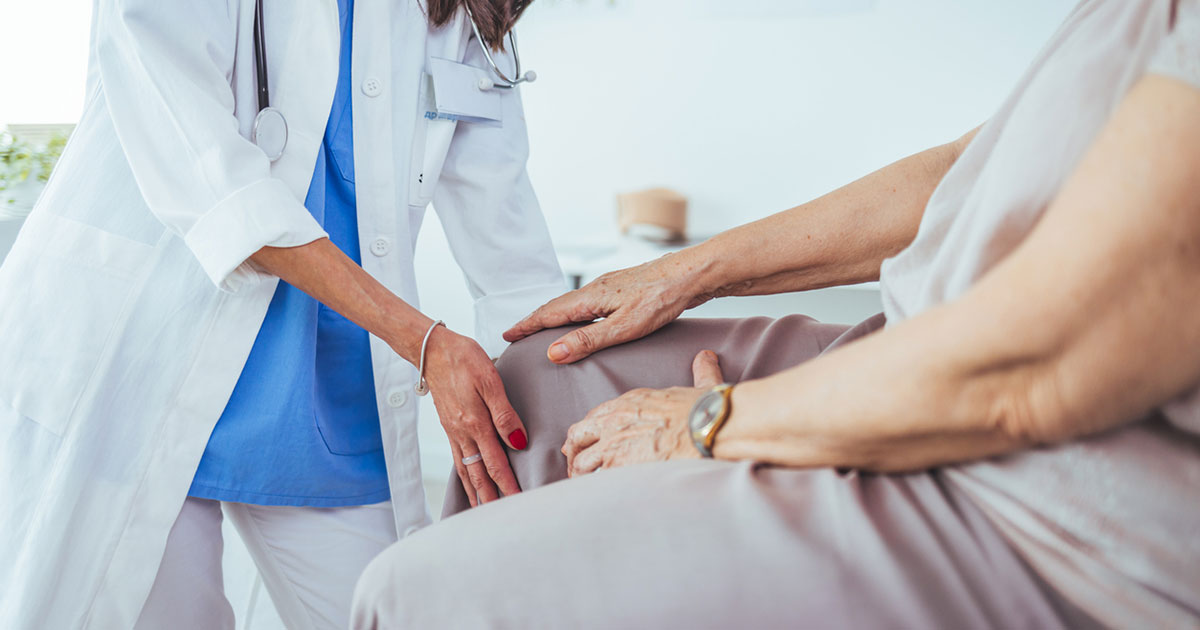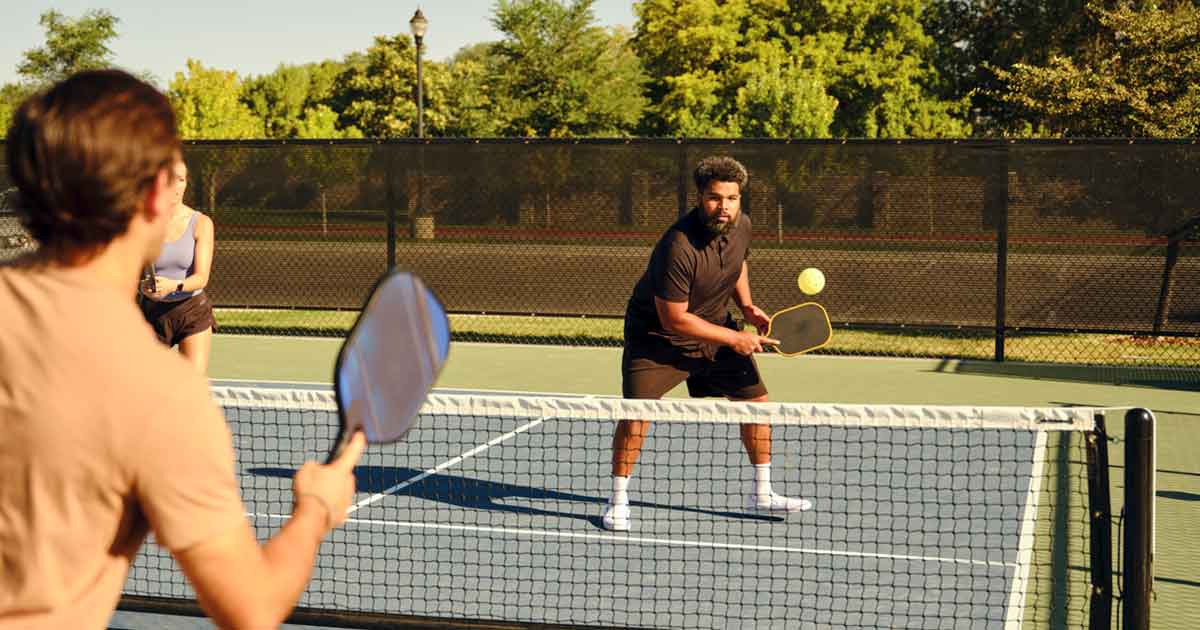Is Pickleball Good for the Knees?
Advice to improve your movement, fitness, and overall health from the world's #1 in orthopedics.
If you’re among the growing ranks of pickleball players or are interested in taking up the fastest-growing sport in the United States, you may be wondering about the effect the game might have on your body.

The good news, says James Robinson, MD, a sports medicine specialist at HSS, is that pickleball is a relatively safe activity, even for older people and non-athletes who’ve never played a sport in their life. “Pickleball is less demanding than tennis or racquetball and doesn’t require as much running,” Dr. Robinson explains.
But for older participants in particular, the sport can take a toll on the knees—especially if players have arthritis in the joints or trouble with their balance, which can lead to falls on the court. “A lot of the game is spent stooped over, which can cause challenges for knees,” he adds.
One area on the court to watch out for is the “kitchen,” a small box around the net measuring at least 20 x 44 feet that designates a no-volley zone. Players often find themselves outside the kitchen, waiting for shots. “You’re squatting and not moving much at times, which can put a lot of pressure on the knee cap. That can lead to tendonitis in the joint and pain in the quadriceps muscles,” Dr. Robinson says.
A Pickleball-Friendly Warm-Up
As with all sports, a little preconditioning can help keep the body injury-free. “It’s always important to warm up the muscles and get ready for an activity,” Dr. Robinson says. “With pickleball, sometimes there’s a lot of standing around waiting for courts to free up, so you can take that time to do certain exercises to help yourself get ready for the games.”
Some examples include:
- Mini squats to get the knees lubricated and the muscles in the joint moving.
- Calf raises help to loosen up the lower body.
- Hip flexion exercises to stretch the muscles, tendons and ligaments in the hip and increase flexibility.
The key to these stretches, Dr. Robinson adds, is that they are dynamic, providing small movements that simulate functional action rather than stationary pulling. “You’re getting the joints and muscles used to the motion they’ll soon be performing,” he says.
In addition to stretching, picklers will want to work on strengthening their lower body. That means working on the quads, core muscles and gluteus maximus.
Pickleball and Arthritis: A Bad Mix?
People with knee osteoarthritis should not be afraid to pickle, Dr. Robinson says. “Exercise doesn’t cause arthritis or make it worse. In fact, inactivity is probably the worst thing you can do for arthritis. But physical activity can lead to pain, so you need to listen to your body. If you’re playing and the pain gets intense, just back off.”
On the other hand, a little soreness that goes away relatively quickly after playing and doesn’t interfere with daily life isn’t a problem, he adds.
Try using a heating pad before playing to help loosen up the knees. Applying ice after games can help to reduce pain and minor swelling in the area.
Of course, zealous players may find themselves putting their bodies (and knees) in unforgiving positions, so Dr. Robinson leaves picklers with the following advice: “If your knee gives way or becomes swollen, you definitely need to see someone and get it checked out.”
Published 5/23/2023



